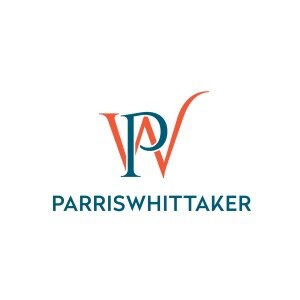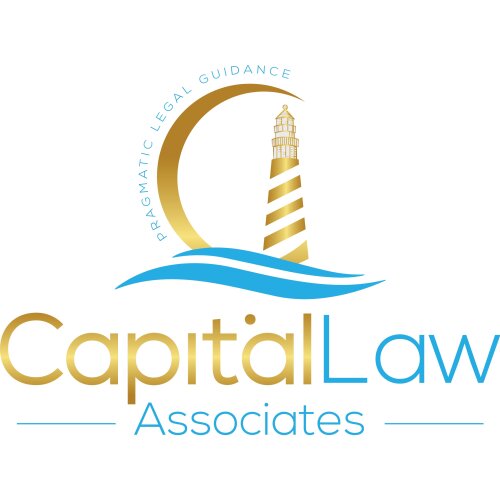Best FDA Law Lawyers in Bahamas
Share your needs with us, get contacted by law firms.
Free. Takes 2 min.
Or refine your search by selecting a city:
List of the best lawyers in Bahamas
About FDA Law in Bahamas
FDA Law in the Bahamas refers to the regulations and standards that govern the importation, manufacture, distribution, sale, and labeling of food, drugs, cosmetics, and medical devices in the country. The Bahamas, while not regulated by the United States Food and Drug Administration, enforces its own laws and standards primarily through the Bahamas Ministry of Health as well as various legislative acts. These laws are intended to ensure that products on the Bahamian market are safe for consumption and use, properly labeled, and that public health is protected. FDA Law in the Bahamas closely aligns with international best practices but has unique local requirements and processes.
Why You May Need a Lawyer
You might need a lawyer familiar with FDA Law in the Bahamas if you are involved in activities such as importing or exporting food, drugs, or cosmetics, starting a business dealing in these products, or if you are facing enforcement action for alleged violations of product safety or labeling laws. Legal complexities can also arise if you wish to register new drugs or medical devices, navigate compliance issues, respond to product recalls, or dispute government decisions about product registration or compliance. A lawyer can help ensure you meet all local requirements, manage risks, and protect your business or personal interests.
Local Laws Overview
The Bahamas has specific legislative acts that relate to the regulation of food and drugs. The key law is the Food & Drugs Act, which outlines standards for safety, labeling, advertising, and registration of food, drugs, cosmetics, and medical devices. Other closely related regulations include the Pharmacy Act, the Dangerous Drugs Act, and various Ministry of Health guidelines. These laws set forth the processes for registering new products, requirements for labelling and advertising, prohibited ingredients, and procedures for dealing with non-compliance. The enforcement agencies include the Department of Environmental Health Services and the Bahamas Health Food & Drug Inspectorate. Local businesses and importers should be aware that all products are subject to inspection at customs and may require prior approval from Bahamian authorities before being sold to the public.
Frequently Asked Questions
What is the purpose of FDA Law in the Bahamas?
FDA Law is designed to protect public health by ensuring that food, drugs, cosmetics, and medical devices available in the Bahamas are safe, properly labeled, and meet established quality standards.
Who is responsible for regulating food and drugs in the Bahamas?
The Bahamas Ministry of Health, along with the Bahamas Health Food & Drug Inspectorate and the Department of Environmental Health Services, are primarily responsible for the regulation and enforcement of food and drug laws in the country.
Do all imported products need to be registered in the Bahamas?
Yes, most food, drugs, cosmetics, and medical devices must be registered or approved before they can be imported and distributed in the Bahamas. There are specific procedures depending on the type of product.
What happens if I import unregistered drugs or food products?
Importing unregistered products can result in seizure at customs, fines, product recalls, or legal penalties. It is important to comply with all registration and licensing requirements before importing.
How do I know if my product is compliant with Bahamian FDA Law?
You should review the relevant laws and regulations or consult with a legal professional. Compliance often requires meeting specific standards for safety, labeling, composition, and, in some cases, obtaining pre-market approvals.
Are there special rules for advertising food and drugs in the Bahamas?
Yes, advertising must be truthful and not misleading, and certain claims or representations are prohibited by law. All advertisements are subject to regulatory review.
Can I sell a food or drug in the Bahamas that has been approved in another country?
No, approval in another country does not automatically allow you to sell the product in the Bahamas. Local registration and compliance with Bahamian standards are required.
What should I do if my product is recalled in the Bahamas?
You should cooperate fully with authorities, notify affected consumers if necessary, and follow all recall procedures mandated by the law. A lawyer can help manage the recall process and minimize liability.
How long does the product registration process take?
The timeline varies depending on the type of product and the completeness of your application. It is best to start the process early and ensure all documentation is in order to avoid unnecessary delays.
What legal penalties can result from violating FDA Law in the Bahamas?
Penalties may include fines, imprisonment, product seizure, business closure, or revocation of licenses. The severity depends on the nature of the violation and whether it involved intentional misconduct or negligence.
Additional Resources
- Bahamas Ministry of Health: Offers guidance on health product regulations and registration requirements - Department of Environmental Health Services: Oversees safety and compliance of food establishments and products - Bahamas Health Food & Drug Inspectorate: Responsible for inspecting and certifying food and drug products - Bahamas Customs Department: Provides guidance on import requirements and procedures - Local pharmacies and trade associations: May offer information regarding best practices for compliance
Next Steps
If you require legal assistance concerning FDA Law in the Bahamas, your first step is to gather all relevant documentation about your product or concern. This includes product specifications, any correspondence with regulatory agencies, and business licenses. Next, consider consulting with a Bahamian attorney who specializes in FDA or health law. They can help you understand your obligations, prepare applications or defense strategies, and represent your interests before government agencies. If you are starting a business or importing products, consult legal counsel early in the process to ensure full compliance and to avoid costly legal issues in the future.
Lawzana helps you find the best lawyers and law firms in Bahamas through a curated and pre-screened list of qualified legal professionals. Our platform offers rankings and detailed profiles of attorneys and law firms, allowing you to compare based on practice areas, including FDA Law, experience, and client feedback.
Each profile includes a description of the firm's areas of practice, client reviews, team members and partners, year of establishment, spoken languages, office locations, contact information, social media presence, and any published articles or resources. Most firms on our platform speak English and are experienced in both local and international legal matters.
Get a quote from top-rated law firms in Bahamas — quickly, securely, and without unnecessary hassle.
Disclaimer:
The information provided on this page is for general informational purposes only and does not constitute legal advice. While we strive to ensure the accuracy and relevance of the content, legal information may change over time, and interpretations of the law can vary. You should always consult with a qualified legal professional for advice specific to your situation.
We disclaim all liability for actions taken or not taken based on the content of this page. If you believe any information is incorrect or outdated, please contact us, and we will review and update it where appropriate.
Browse fda law law firms by city in Bahamas
Refine your search by selecting a city.

















